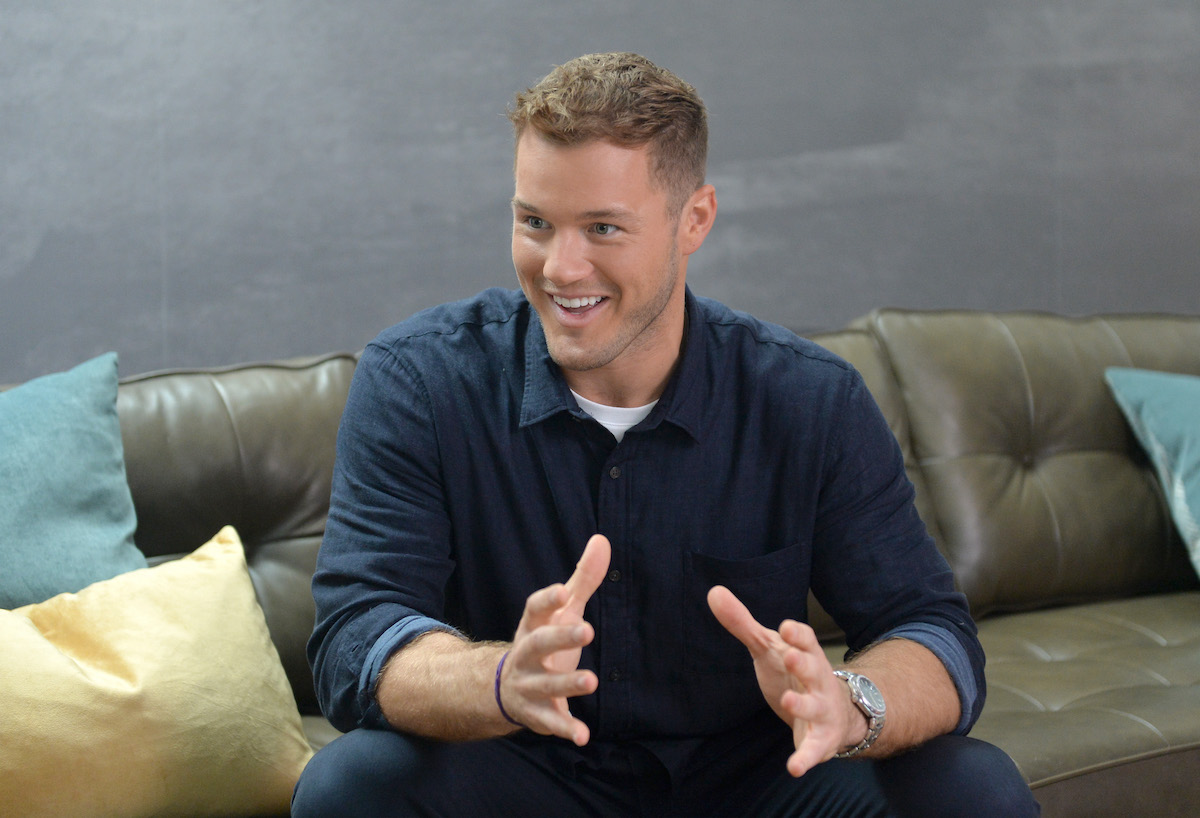‘Coming Out Colton’: Colton Underwood Being Compared to LGBTQ Pioneers Like Harvey Milk Is Cringeworthy and Tone Deaf
Former NFL player Colton Underwood became famous after his 2018 appearance on The Bachelorette and starring role on The Bachelor. He became infamous when he allegedly stalked and harassed his fiancée Cassie Randolph after the show ended. Reality set in. The two dated but the relationship ended, and Underwood hit bottom.
In an early 2021 interview, he came out as gay. Shortly afterward, Netflix announced its forthcoming docuseries, Coming Out Colton, in what critics called a “calculated” move. People didn’t know what to expect. After the series aired, many journalists questioned Netflix’s choice to end the show with a montage of iconic LGBTQ activists.
The ‘Coming Out Colton’ demographic is unclear
Two groups of people are likely to watch Coming out Colton, according to Esquire. First, fans of The Bachelor have certainly been intrigued. The other group might be LGBTQ individuals both in or out of the closet. Of course, some individuals are members of both groups. It seems like Underwood and the Netflix producers had an audience in mind. But many critics struggled to pinpoint it.
Esquire’s Justin Kirkland wrote, “My discomfort with the show, rather, is how he has used this journey for personal gain, quick wealth, and celebrity.” When Netflix first announced the show, some critics and journalists thought the speedy turnaround felt forced.
‘Coming Out Colton’ features artificial drama and missed opportunities

None of the people Underwood came out to before and while filming Coming Out Colton — not his family, close friends, even former castmates on The Bachelor — reacted negatively to his sexual identity. (Randolph has yet to comment on the series.) Rather than highlight Underwood’s acceptance and potentially help others come out, the series churned out artificial drama reliant on clichés and tropes. Few of Underwood’s friends, family, or other personal connections opposed him.
One of the earliest criticisms of the show had to do with who starred in it. As reported in Out Magazine, Netflix gave Underwood a platform other members of the LGBTQ community, namely transgender individuals and people of color, struggle to access.
The fact that these activists seldom receive a voice in the series only added to the insult when it comes to the final montage of Coming Out Colton., which showed photos of Harvey Milk, Matthew Shepard, and Marsha P. Johnson. Whether Netflix intended to compare Underwood to iconic LGBTQ activists who faced intense opposition and even death, it feels tone-deaf.
Reality TV shows like ‘Coming Out Colton’ often botch socially conscious topics
This isn’t the first time that television has mishandled socially conscious issues in a quest for ratings. Remember The Activist? CBS canceled the series because of its tone-deaf concepts and questionable distribution of prize money. Unlike that program or The Bachelor franchise, Coming Out Colton was not a contest; it was an opportunity to show the process of coming out in a raw, honest way. In that sense, the series failed to deliver.
As for Underwood’s future success in the reality genre? That is unclear. As of publication, Netflix has not announced the release dates for Coming Out Colton‘s second season. Underwood has not yet responded to the show’s critics. However, it’s worth noting that Eqquire’s criticism focuses on Netflix’s choice to air the series in the way it did, not on Underwood’s journey itself.
There is no wrong way to come out. Everyone has their own journey, but not everyone’s journey is dramatic enough for a docuseries.
Related: Colton Underwood Claims He Was ‘Blackmailed’ Into Coming Out


